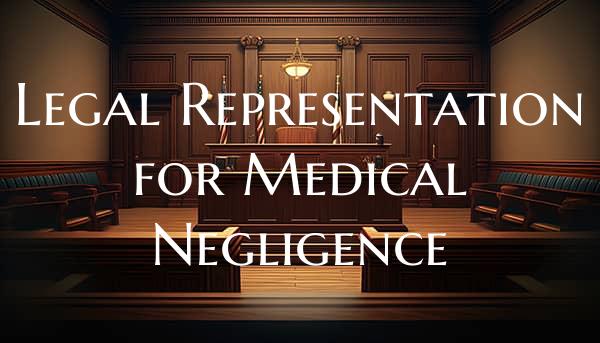
Legal Representation for Medical Negligence
Medical negligence, also known as medical malpractice, occurs when a healthcare provider fails to meet the standard of care expected in their profession, resulting in harm or injury to a patient. When faced with such a situation, it is crucial for the affected individual or their family to seek appropriate legal representation to navigate the complexities of a medical negligence case.
1. Expertise in Medical Malpractice Laws: Legal representation for medical negligence cases is essential due to the specialized knowledge and expertise required to understand and effectively pursue such claims. Experienced medical malpractice attorneys have a deep understanding of the laws and regulations governing healthcare practices, enabling them to assess the merits of a case and advise clients on the best course of action.
2. Investigation and Case Building: A skilled attorney will conduct a thorough investigation into the circumstances surrounding the alleged medical negligence. This may involve reviewing medical records, consulting with medical experts, and gathering evidence to build a strong case. An attorney can help clients understand their rights and options while advocating on their behalf to seek justice and compensation for the harm suffered.
3. Negotiation and Settlement: In many medical negligence cases, the goal is to reach a fair settlement that compensates the victim for their injuries and losses. Legal representation is crucial during negotiations with insurance companies or healthcare providers to ensure that clients receive the compensation they deserve. A knowledgeable attorney can skillfully negotiate on behalf of their clients and protect their interests throughout the process.
4. Courtroom Advocacy: In cases where a fair settlement cannot be reached, legal representation is essential for effective courtroom advocacy. A competent attorney will represent the client in court, presenting evidence, examining witnesses, and arguing the case before a judge and jury. Through skilled advocacy, an attorney can help clients pursue a favorable outcome in a medical negligence lawsuit.
5. Emotional Support and Guidance: Dealing with the aftermath of medical negligence can be emotionally challenging for victims and their families. Legal representation provides not only legal guidance but also emotional support during this difficult time. An attorney can offer reassurance, empathy, and practical advice to help clients navigate the complexities of the legal system and work towards a resolution that provides a sense of closure and justice.
In conclusion, legal representation for medical negligence cases is crucial for individuals seeking to hold healthcare providers accountable for their actions. By enlisting the assistance of an experienced attorney, victims of medical malpractice can benefit from specialized legal expertise, strategic advocacy, and emotional support to pursue fair compensation and justice for the harm they have suffered.
